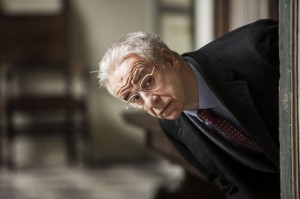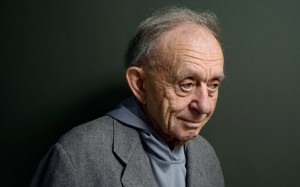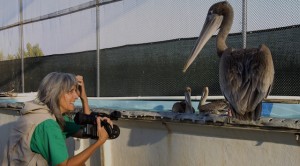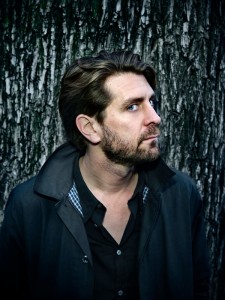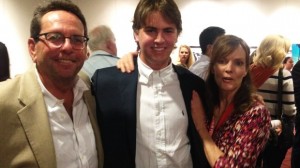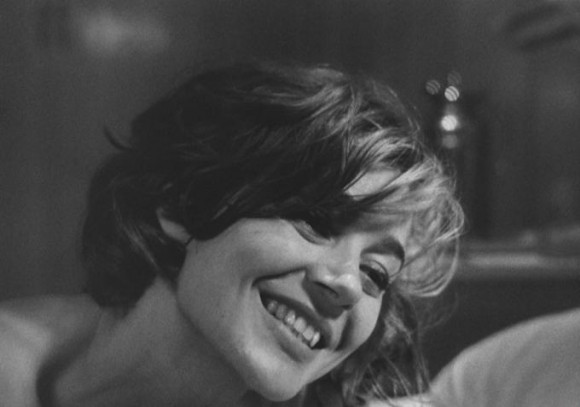With Russia on everyone’s minds more than usual this year, we are thrilled to offer a brilliant cinematic look at this nation with Andrey Zvyagintsev’s LEVIATHAN. The film, winner for Best Screenplay and a nominee for the Palme d’Or at Cannes earlier this year, is a painterly, primordial tale about a proud patriarch fighting to protect his family home from a corrupt local official. Kolia lives in a small fishing town. It “puts contemporary Russia, as up-to-the-minute as Putin and Pussy Riot, under the microscope. LEVIATHAN is a stupendous piece of work that transcends language and borders.” The New York Daily News described the film as “a bleak, beautiful, and bitterly funny parable of post-Soviet Russia.”
Larry Rohter of the New York Times recently spoke to the filmmaker:
In 2008, the Russian director Andrey Zvyagintsev was in Manhattan shooting a chapter of the anthology film “New York, I Love You,” when he heard the story of an auto-repair shop owner in Colorado who had demolished the town hall and a former mayor’s house with an armored bulldozer after losing a zoning dispute. From that American seed has sprung “Leviathan,” a quintessentially Russian tragedy suffused with political and religious overtones.
“It was what this guy did, protesting against injustice, that impressed me most of all,” Mr. Zvyagintsev (pronounced ZVYA-ghin-tsev) said in an interview while in New York last month to promote “Leviathan,” which opens on Christmas Day. “My first feeling was, ‘Wow, what an amazing story, I absolutely need to do something with this.’ ”
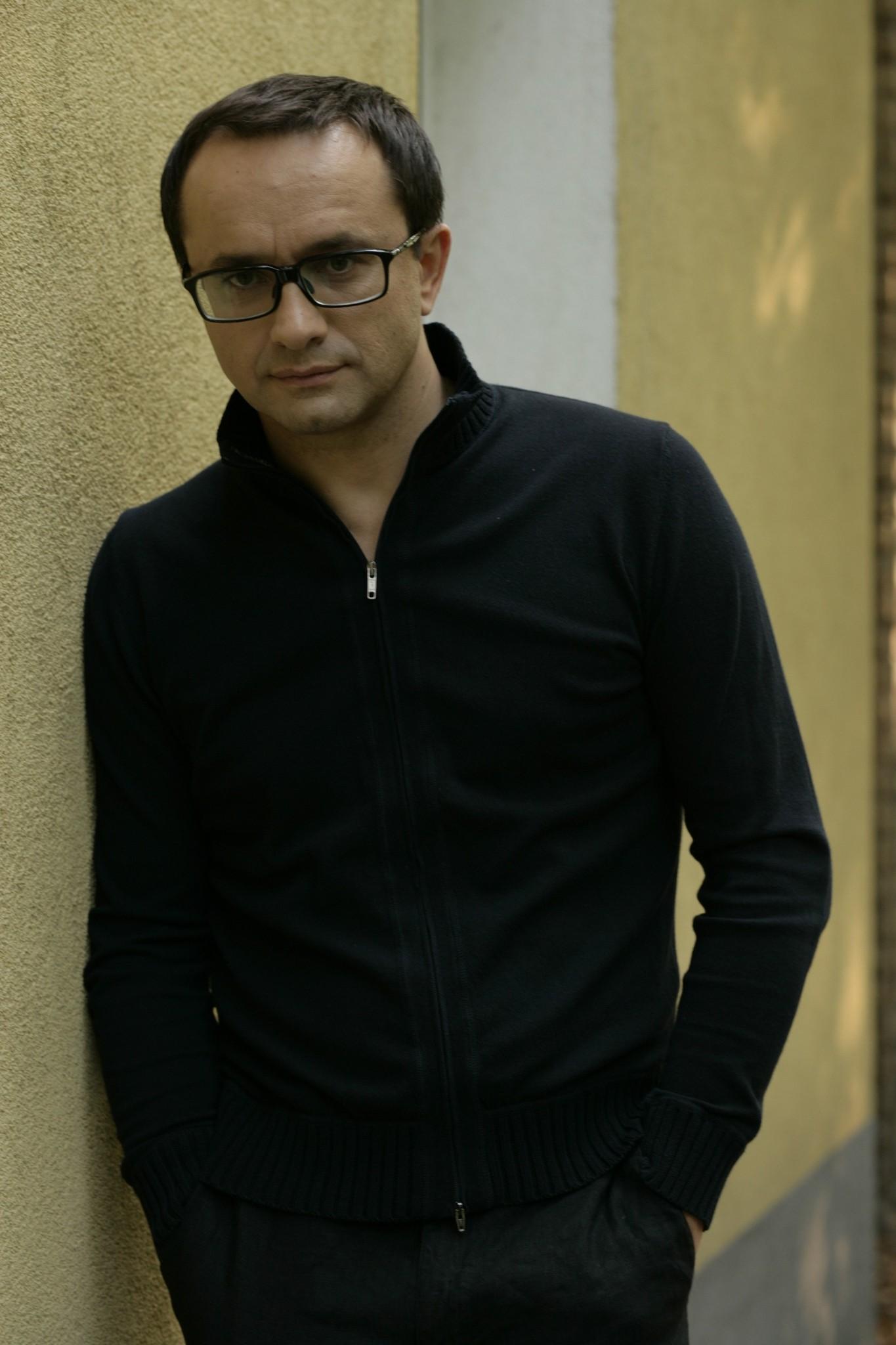
His screenwriting partner, Oleg Negin, initially resisted, arguing, as Mr. Zvyagintsev recalled, that “this is an American story, why would we want this?” But as other influences drawn from the director’s reading made themselves felt — Heinrich von Kleist’s novella “Michael Kohlhaas,” the biblical Book of Job and, after the film already had its name, Hobbes’s treatise on the nature of the social contract — the specifically Russian characteristics of the movie’s story began to emerge.
The main character in “Leviathan” is Nikolai, who runs an auto-repair shop next to the house where he lives with his young wife and teenage son in a dead-end fishing village on the shores of the Arctic Ocean. The mayor wants that land and uses his power to try to force the family out, and when Nikolai resists, the resulting series of events crushes him and those trying to help him.
Diverse as their origins may be, all of Mr. Zvyagintsev’s source materials share a common theme: the resistance of the individual to some arbitrary exercise of authority. That power may be corporate, political or even divine, but in each case, there is “a collision between a little person and a vast structure, the Leviathan,” Mr. Zvyagintsev explained.
“In a country like Russia, all the security, all the protection a member of society gets is from the establishment, police, army, health providers,” he said. “In exchange, people have to give back their freedom. I was overwhelmed with this idea. I saw it as a deal a human being might make with the Devil. Freedom is the main value a human being has, but sometimes, people don’t even notice it is being taken, because they are following the guarantees they were given.”
“Leviathan” thus appears to be an indictment of corruption and cynicism in Vladimir Putin’s increasingly authoritarian Russia. One scene, a brutal shakedown, takes place in the mayor’s office as a portrait of Mr. Putin looks on, and in another, two characters on a picnic excursion shoot up portraits of Soviet leaders from Lenin to Gorbachev and joke about when those now in power might be added to the garbage heap.
“This is how a Russian person treats power, with irony and contempt,” Mr. Zvyagintsev said when asked about that scene’s significance. “If people hold high positions, they should expect to be treated like that, if they have common sense, if they have self-irony.”
It was suggested to him that Mr. Putin lacked both a sense of humor and self-irony. “Yes, it’s a very hard job,” he replied, deadpan, declining to say anything further on the subject.
“Leviathan” has made a splash internationally. It won an award for best screenplay at the Cannes Film Festival last spring, was nominated this month for a Golden Globe for best foreign language film, and, to the surprise of those who thought its audacious subject matter would doom its chances, it is also Russia’s submission for the Oscar in that category. A. O. Scott of The New York Times named it one of the 10 best films of 2014.
Within Russia, “Leviathan,” which was partly financed by a government fund for filmmaking, has been controversial. “It’s talented, but I don’t like it,” the country’s minister of culture, Vladimir Medinsky, said last summer. For a while, until Mr. Zvyagintsev agreed to bleep offending words, it even appeared that the film would fall afoul of a new law that went into effect in July prohibiting obscene language in cultural projects.
But “Leviathan” is not exclusively — or even primarily, if Mr. Zvyagintsev is to be believed — about politics in today’s Russia. As reflected in his three earlier films, including “Elena,” released in the United States in 2012, he is deeply interested in moral and even overtly religious questions and describes Nikolai as “a righteous sufferer, the subject of an experiment.”
Nancy Condee, author of “The Imperial Trace: Recent Russian Cinema” and a specialist in Russian and Soviet cultural politics at the University of Pittsburgh, described Mr. Zvyangintsev as a director “actively and intensely engaged with spiritual issues in an allegorical biblical framework. “He is clearly a deep believer, in a noninstitutional sense,” she continued, and his films are full of “arrows pointing up to the sky, pitching you upward, away from a reality that is debased.”
In the scene that gives the movie its title, Nikolai, drunk and depressed, encounters a Russian Orthodox priest and questions the fate that has befallen him. The priest, a confidant of the mayor, responds by quoting from the Book of Job: “Can you draw out Leviathan with a fishhook, or press down his tongue with a cord? Can you put a rope in his nose, or pierce his jaw with a hook? Will he make many supplications to you? Will he speak to you soft words? Will he make a covenant with you?”
The Russian actor Aleksey Serebryakov, who plays Nikolai, said by telephone this month that “the most complex thing in this role, in my character’s life, is this question: ‘Where are you, merciless God?’ ”
For all its grim subject matter, “Leviathan” is beautiful visually, with one long shot after another conferring a stark beauty on a harsh and barren landscape. In an email, Sitora Alieva, program director of the Kinotavr Open Russian Film Festival in Sochi, said that Mr. Zvyagintsev brings a “unique poetic taste to cinema” and describes him as the most famous Russian film director working today.
But early in his career, Mr. Zvyagintsev, now 50, did not seem a likely candidate for such distinctions. He was born well outside the Moscow-St. Petersburg axis that dominates Russian culture, in the Siberian city of Novosibirsk, and after moving to Moscow struggled for years to find a niche, first as an actor and then as a director. Among his early efforts was a commercial for a furniture store.
“He comes from the provinces, and that is something important to take into consideration,” said Peter Rollberg, the author of “The A to Z of Russian and Soviet Cinema” and a professor of Slavic languages and film studies at George Washington University. “Coming from far away, he brings a freshness of perception.”
Asked about growing pressures on free expression, Mr. Zvyagintsev said that given that he was born in Russia and had lived there his entire life, he hoped to be able to continue making films in his homeland. But Mr. Serebryakov moved his family to Canada three years ago, saying then that he would “like my children to grow up under a fundamentally different ideology” than the system of “coarse intolerance and aggressive behavior” he saw prevailing in Russia. He now returns home only for work on projects like “Leviathan.”
“To tell you the truth, I’d rather speak about the movie,” he said in response to a request to elaborate on those earlier remarks. “I’m not inclined to speak about politics. Yes, it’s a rather complex situation in Russia today, but I really hope it will change.”

